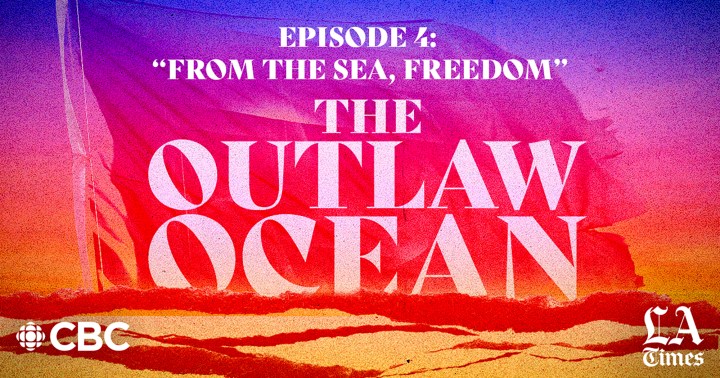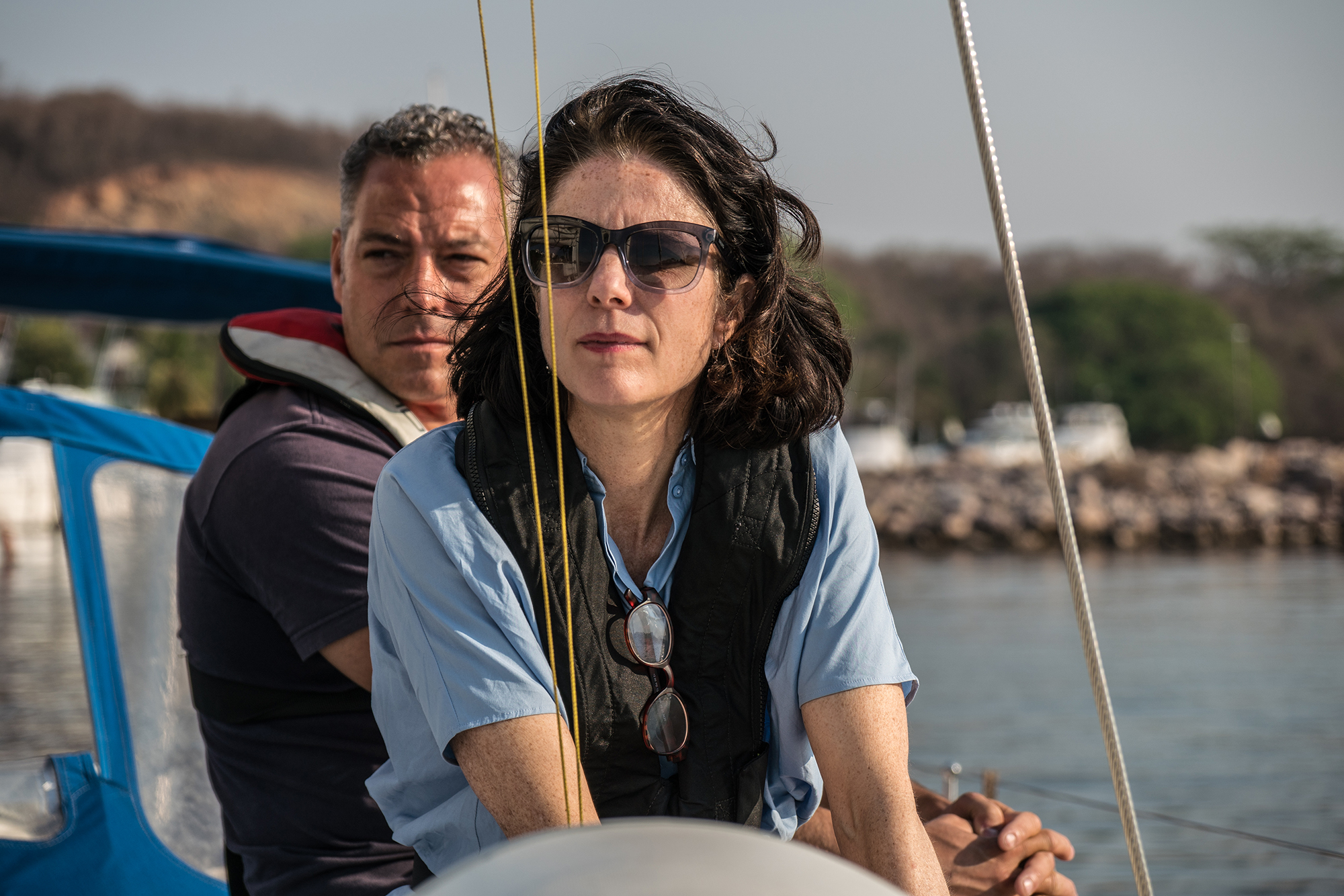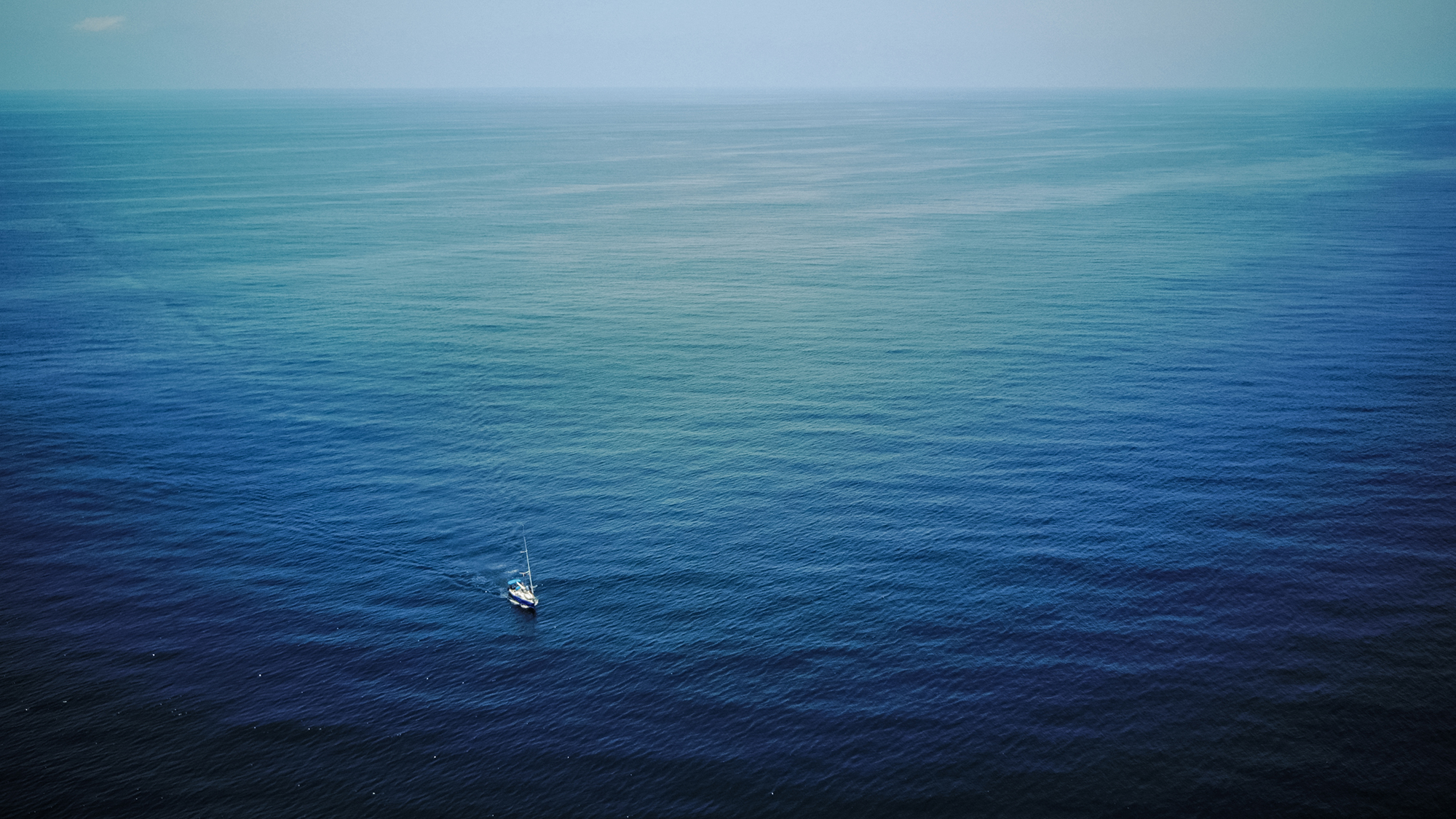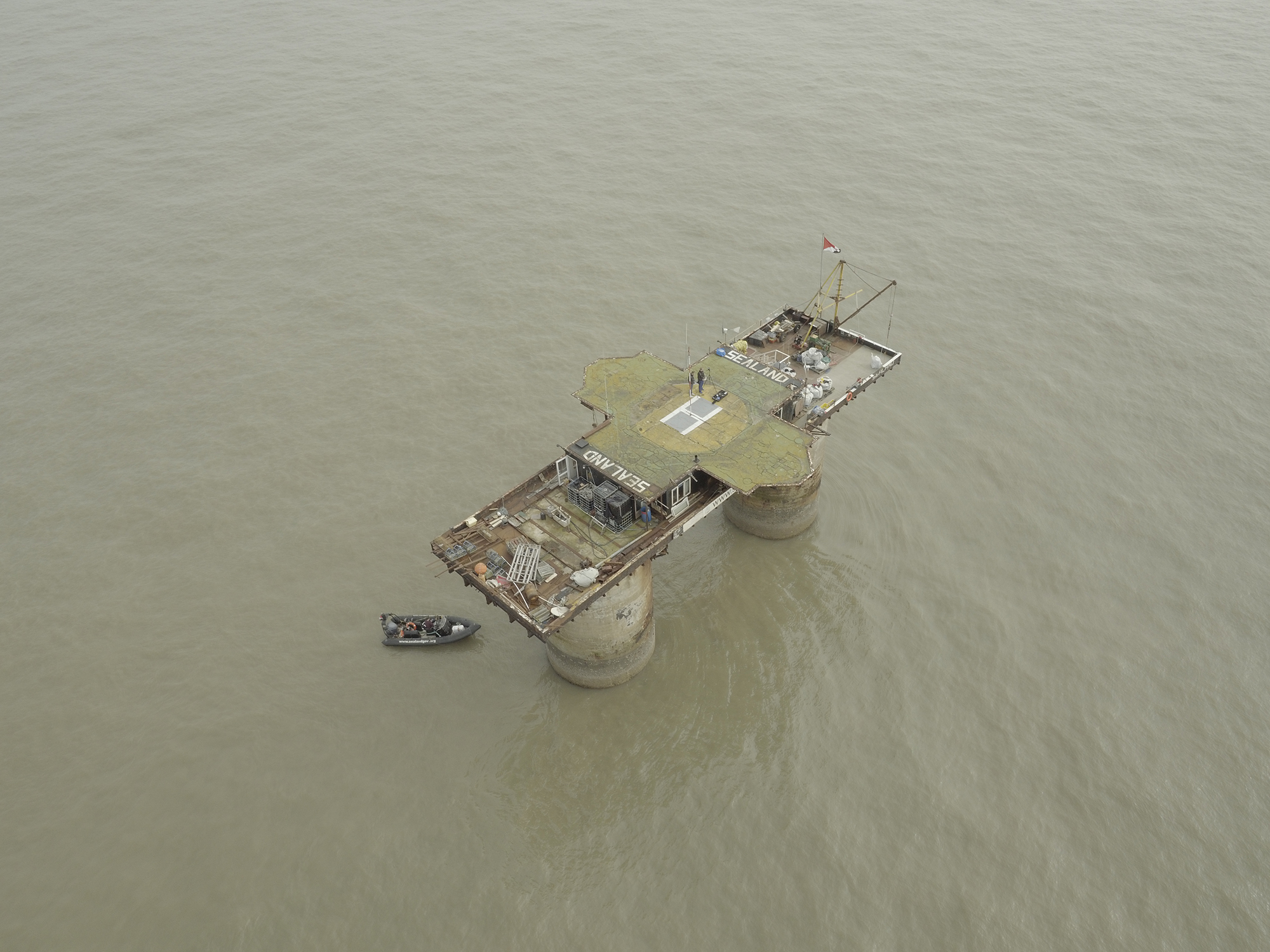THE OUTLAW OCEAN PODCAST
Episode 4: How the high seas became a metaphor for freedom

The lawlessness of the oceans provides space for absurd and remarkable stories of renegades and mavericks of all sorts seeking to escape national sovereignty and restrictive laws.
Sealand is a perfect example. A “micronation” on an eerie metal platform a few miles off the coast of England in the North Sea, Sealand was an abandoned British anti-aircraft platform. On Christmas Eve of 1966, Paddy Roy Bates, a retired British army major, drove a small boat, used a grappling hook and rope, clambered onto the abandoned platform, declared it conquered and declared it a gift for his wife, Joan.
Later, Roy announced the establishment of the new nation of Sealand. The motto of the country over which he reigned was E Mare, Libertas, or “From the sea, freedom”.
Constituted as a principality, Sealand had its own passport, coat of arms, and flag – red and black, with a white diagonal stripe. Its currency was the Sealand dollar, bearing Joan’s image.
It was not a luxury palace. Built in the early 1940s as one of five forts that defended the Thames, the place was little more than a wide deck about the size of two tennis courts set atop two hollow, concrete towers, 20 metres above the ocean.
The improbable creation of the world’s tiniest maritime nation was a thumb in the eye of international law. Though no country formally recognises Sealand, its sovereignty has been hard to deny. The reason goes back to the first principles of sovereignty: A country’s ability to enforce its laws extends only as far as its borders. Roy appeared to be operating legally, or at least opportunistically, within a legal void.
You can’t find two organisations and two people more different than Sealand and Women on Waves – or Roy Bates and Rebecca Gomperts. But The Outlaw Ocean Project, a non-profit journalism organisation based in Washington, DC, followed their stories to show what they have in common: taking advantage of the freedom of the seas to do what they want.
These two stories are told in detail in the fourth episode of The Outlaw Ocean podcast, from CBC Podcasts and the LA Times. Listen to it below:
Rebecca Gomperts is a Dutch doctor and founder of Women on Waves, a group that provides access to medical abortions, which entail administering pills to induce miscarriage, for women who live in countries where abortion is restricted or criminalised.
Globally, more than 20 million women annually have “unsafe” abortions, and at least 47,000 of them die each year as a result, according to the World Health Organization.
A provision in maritime law treats a ship in international waters like a floating embassy – in effect, a detached chunk of the land whose flag it flies. This means the laws that apply on board are only those from the country where the ship is registered.
Where a country’s federal law may forbid abortions, the jurisdiction of that law only reaches the limits of national waters – 20km from shore. In international waters, abortion is legal on Rebecca Gomperts’ ship because it flies the flag of Austria, where abortion is permitted.

Ian Urbina and Rebecca Gomperts wait for permission from Mexican authorities to leave port, Mexico, 2017. (Photo: Fábio Nascimento / The Outlaw Ocean Project)
In Mexico, where The Outlaw Ocean Project accompanied Gomperts on several of her missions, the first trip out to sea was taken before the local government knew about the ship. The big obstacle was the weather. The boat ran aground twice and was nearly overturned by huge waves when leaving the port.
On board were two young women, both in their 20s, both Mexican, who seemed pretty frightened but resolute, and who had come to have abortions.
It took about six hours to get from shore to the 20km line that divides national and international waters, and that’s where Gomperts, who is a gynecologist, administered a sonogram to see how far along the young women’s pregnancies were.

Drone shot of the Women on Waves boat in the open ocean, Mexico, 2017. (Photo: Fábio Nascimento / The Outlaw Ocean Project)
Both were several weeks in, and Gomperts held a counselling session to inform the women of factors to consider: Whether this was the right decision and what they might expect in terms of the after effects of taking the pills.
The second trip out was after Women on Waves had held a press conference. The government reacted strongly and tried every tactic to stop the ship from taking women out to international waters.
The government first claimed that the crew did not have proper maritime and visa papers. It closed the port ostensibly due to bad weather. They threatened Gomperts with arrest for lacking permission to bring women out and back from international waters.
None of these tactics withstood their review of a Mexican judge and Gomperts’ lawyers, so the boat sailed out a second time with another woman needing an abortion. DM/OBP
Listen to Episode 1 here
Listen to Episode 2 here
Listen to Episode 3 here
Ian Urbina is the director of The Outlaw Ocean Project, a non-profit journalism organisation based in Washington, DC, that focuses on environmental and human rights concerns at sea globally.























 Become an Insider
Become an Insider
Comments - Please login in order to comment.